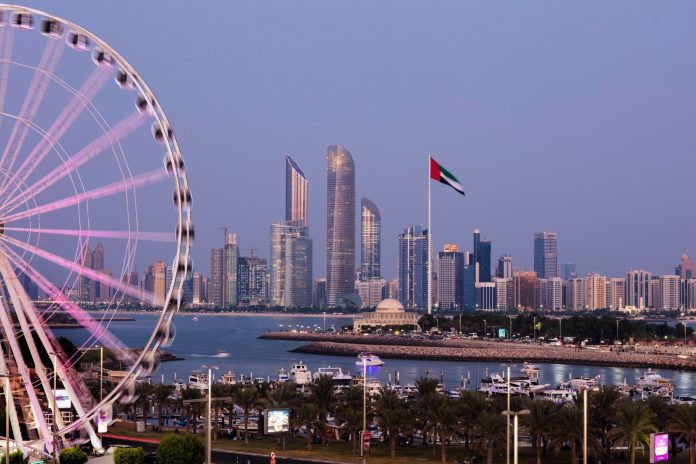
In the most important shift in American trading policy in more than a century, the introduction of ‘reciprocal’ rates by the United States is in the global markets. Focusing on the import of countries with larks surpassed against the US, the new policy applies double digits at 39% in sub-matters on foreign goods that affect economies from Asia to the Middle East.
Although alarm bells sound in many capitals, the United Arab Emirates who have conducted Reativley appear and even strategically posted to take advantage of this global reconciling.
To a different type of rate
In contrast to traditional rates that are applied to specific goods or industries, the new American model trader criminals calculates based on the size of the trading surplus of a country with America. The greater the surplus, the higher the rate. For example, Iraq is confronted with a mutual rate of 39%, while China is affected by 34% arch figures derived from the scale of their trade shortages with Washington.
The VAE, on the other hand, maintains a balanced trade relationship with the US and is subject to the minimum rate tire of 10%. What is even more important is that oil, gas and refined energy products – which form a significant share of golf exports – exempt from the measures, thereby immediately reducing exposure for important exporters such as the VAE and Saudi -Aarabia.
Until short -term cushion
In the immediate term, the impact on the VAE economy is expected to be minimal. With its diversified export profile, well -developed free zones and strong global logistics infrastructure, the emirates are largely protected against the most disturbing aspects of the new policy.
Important non-ergie exports such as aluminum, gold and electronics can get modest cost adjustments, but not on the scale that would penetrate trade flows. In addition, business and investors will remain robust in sentimento in relation to the VAE, especially in view of the stable political environment of the country and the regulations for pro-business.
For multinational companies that are hoping for their supply chains, the VAE offers a compelling value proposition: a central logistics hub, advanced ports and airports, digital infrastructure of world class and strategic access to markets in Asia, Africa and Europe.
Strategic benefit in the long term
After the short term, the VAE looks forward as a winner in the changing worldwide trade order.
As uncertainty in the trade relations of the US-China-EU is deepened, many companies want to diversify the risk. The VAE-all-ready for leading re-export and business hub could play a greater role in regional value chains that offer neutral basis for trade and light production.
Furthermore, if the US economy goes into a recession under the weight of rates and inflation, the Federal Reserve will probably lower the inner rates. Thanks to the Pege from the VAE Dirham to the US Dollar, such movements would translate into cheaper loan costs for the VAE companies, finding investments in important sectors such as real estate, tourism and logistics.
The continuous strategy of the economic diversification of the country, which is non-oil growth, technical investments and the knowledge industry industry industry, is well enclosed with trends. While others are under pressure for Resushoff, the VAE has laid the foundation for resilience in the long term.
RISKS RISKOIN
That said, regional exposure to global trends cannot be obvious. In retailing rates between the US, China and Europe scales in a broader trade war, the global question – private from Asia – can weaken. This would influence the cooking prices and non-oil export volumes of the VAE.
Disruptions of the supply chain can also increase the input costs for manufacturers and re-exporters who work from the VAE-free zones. And if worldwide capital flows slow down, foreign direct investments in emerging markets can be delayed or re -assigned.
Yet the strong fiscal position of the VAE, sovereign richness red service and diversified global partnerships leave the good-predarad to absorb an absorbing before shocks.
Rare opportunity to lead
At a time when large economies turn in, the openness, neutrality and economic agility of the VAE offer a rare opportunity to consolidate his role as a global connector.
While the world consumes the implications of the most agitative tariff strategy of America in decades, the VAE remains focused on building a future-proof economy one that is about cooperation, innovation and smart positioning in a broken trading landscape.
What others consider as a disruption can be very good at the VAE.
